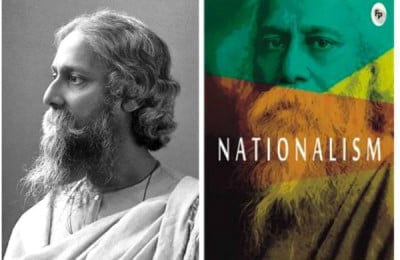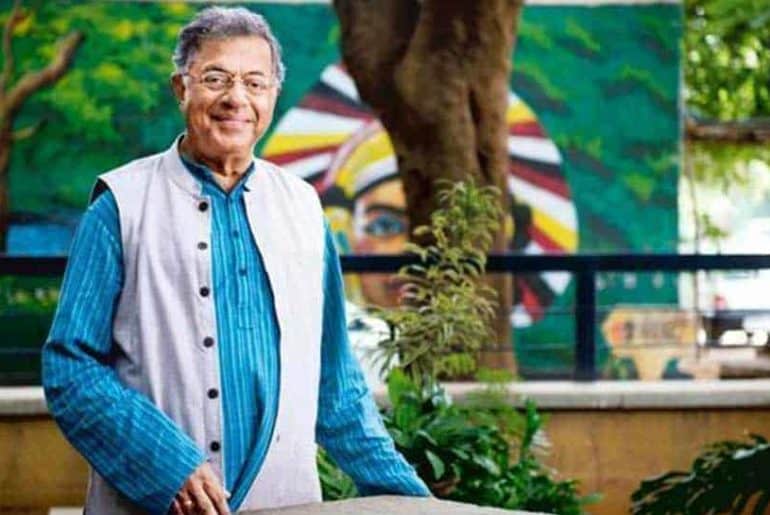Behind the Blue Curtains of Canons and Classics, a dive into the Industry saturated with combined ensnare of Elitism and Misogyny, contextualising the recent accusations against acclaimed author Neil Gaiman and more.
TW: The Article has mentions of Sexual Abuse and Related forms of Violence.
‘On a day like today it’s worth saying, I believe survivors. Men must not close our eyes and minds to what happens to women in this world.’
stood a tweet by erstwhile proclaimed feminist and literary icon Neil Gaiman in September 2018, a solidarity to the MeToo Movement; what remained catastrophically unknown was that half a decade down the road, the author too would face allegations of a heinous degree.
The accusations trace back to February 2022, when the author, infamous over the internet for breaking the COVID protocols and fleeing to his private island, returned to New York and met Scarlet Pavlovich, a 23-year-old drama student, for the first time. Pavlovich, who by then had become a close confidante to Gaiman’s wife, occasionally also babysat their son. On the 4th of February 2022, Scarlet arrived at the author’s residence for her periodic babysitting requirement; however, the folds of the incidents that day became reflective of what lay behind the apparent charade of the women-rights-activist power couple that Gaiman and his wife portrayed to be.
Fractions of short conversations later, transversed what Pavlovich describes as “a subtle terror,” when the author, in the guise of making her relax at the property, sexually assaulted her. A queer woman with a history of childhood sexual abuse, Scarlet’s attempts to resist proved vain when, despite making Gaiman aware of the same, he refused to stop.
‘An author who specialises in depicting tales and narratives of those traditionally marginalised in literature.’ was the prima facie that prompted a 15-year-old me to pick up the hardcover edition of Gaiman’s most popular publication, American Gods, at the bookshop; a diverse cast, in relation to ethnicities and sexualities, was a primordial characteristic. For an author who was celebrated for his portrayal of Lucifer as a woman, the allegations reveal a hard-hitting truth about the masquerades of the literary industry.
In July 2024, a British podcast titled Master covered stories of two women accusing Gaiman of sexual misconduct. What followed was several other women accusing the author of coercion, assault, and sexual violence, with the youngest being 18 years old. In due respect and solidarity with the survivors, the article doesn’t delve into graphic details and instances to prevent even an accidental misinterpretation of their ordeals; within the limits of the same, it can be divulged that the author also engaged in non-consensual forms of BDSM, child grooming, and misappropriation.
Seven years past the MeToo movement that initiated tremors of humanitarian changes within differing industries, the literary industry continues to nurture and foster the sexual predators under its aegis. The phenomenon, however, is not that of modern day; back in the 20th century, the sexual crimes of authors like Roald Dahl and Ernest Hemingway were covered up by publications and largely went unaddressed, while the authors remained celebrated as pioneers in their respective fields. Despite the contemporary presence of the far-reaching internet, while the cinematic industry witnessed the demise of directorial and acting careers of prominent faces, the literary industry continues the practice of whitewashing the crimes. A 1080×1920 pixels PR-Curated Instagram Post Apology ensures that the authors continue to have an ever-expanding success; YA authors like James Dashner and Jay Asher of The Maze Runner and Thirteen Reasons Why continue to enjoy the fame despite the allegations, ironically being celebrated for covering similar topics in their respective books.
Two weeks after MeToo allegations were pressed against celebrated Indian author Chetan Bhagat, his 2018 publication ‘The Girl In Room 105‘ made a bestseller debut upon its release. In an industry and audience that actively propagates to push down female authors for acts measurably minute compared to their male counterparts, the rampant sexism becomes reflective. When the likes of Colleen Hoover, Veronica Roth, et al. get justifiably cancelled, but authors like Junot Diaz continue to enjoy an increased honour and appreciation despite being sexual predators, the industry and our active role in protecting the male elite writers can be realised.
A rampant reasoning towards the continued success of the apparent celebrities despite the sexual assault cases lies in the idea of ‘separating the art from the artist,’ an ideology that inherently feeds into the clutches of patriarchy and elitism. Idol worship and the inherent heroism that propagates, albeit subconsciously, due to the consumption of media, becomes the foremost reason why art cannot be separated from the artist. In more than a few cases, our interpretation of the art prevents us from acknowledging the crimes of the artist, often leading to a counter victim blaming and protection of the culprit. The general public’s lack of support for Tanushree Dutta and Vrinda Nanda when they pressed charges against Nana Patekar and Alok Nath, respectively, on the grounds of the latter being the idealistic heroic characters in the cinematic verses, is reflective of the same tendency. Similar instances were witnessed on a global scale when misconducts came forward against Kevin Spacey and Bill Cosby.
To then consume media often becomes an imperatively challenging aspect, one that involves a deep-rooted understanding of the backgrounds and behaviour of the curator. The aforementioned, in retrospect, becomes a challenging situation. If, as consumers, we fail to undertake the apparent herculean task of the same, a bare minimal approach that largely appears to not be the norm of vocalising dissent against the perpetrators, boycotting and calling out publications that aid them, and solidarizing with the victims is the least proportional change that could be undertaken in the largely misogynistic and elitist status quo that literature presents itself to be.
Read Also: DU Vice Chancellor faces heavy backlash following his endorsement of ‘Modi vs Khan Market Gang’
Featured Image Credit: Google
Shikhar Pathak











